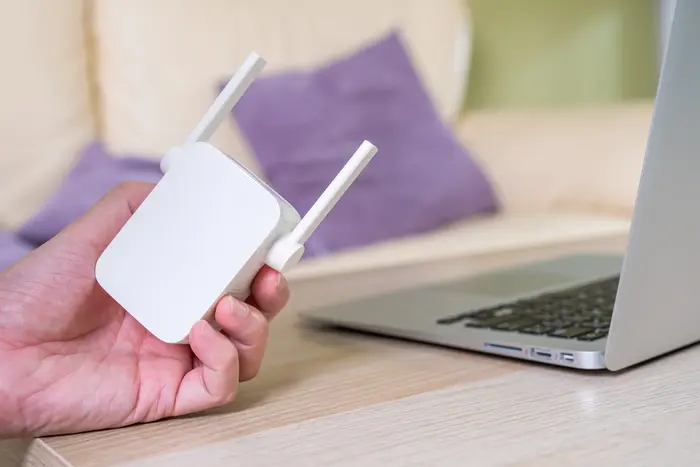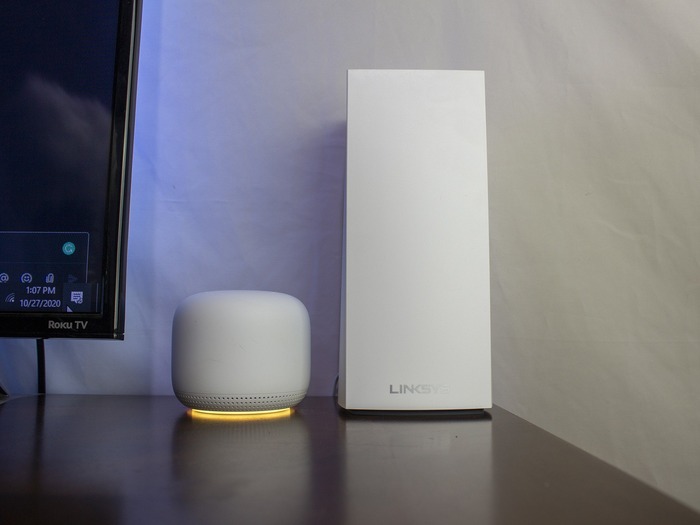If you have a dead zone and are looking to expand the coverage of a wireless network in your home or office, you have two main options available; either invest in a mesh system or add a WiFi extender to the network that can extend the range.
Both of these are viable options if you are looking to extend the WiFi coverage throughout your entire home, but which one should you pick for your home network? Let us go through both of these in detail so you can find out which option is the best for you.
What is a WiFi Extender?
A WiFi extender is a wireless device that can be used to extend the range of your WiFi network by receiving the signals from your existing WiFi network and rebroadcasting the signal, thereby increasing its range.
A WiFi extender can be connected to the wireless router through the WiFi and Tenda router portal. After connecting to the router, it creates a secondary network using the signals from the original network.
WiFi extenders are commonly being used worldwide to extend the range of wireless networks since they are inexpensive and easy to set up.
The most important part about setting up a WiFi extender in your home is to find the best area where you can place the WiFi extender.
You can find the best area in your home by assessing various areas of your home and finding the areas where the WiFi signal is weak. Once found, you can place your WiFi extender in an area with weaker signals or a dead zone to improve WiFi signals in that area.
How Does a WiFi Extender Work?
As mentioned, a WiFi extender works by connecting to your existing wireless network and rebroadcasting that WiFI signal throughout your home or office in areas where the signal from your existing wireless router cannot reach.
Extenders do this by creating an additional network within your home, which you can connect to in areas where the range of your wireless router is poor.
Keep in mind that WiFi extenders can only connect to a single access point (unlike mesh networks) and the right location is important when it comes to setting the device inside your home.
The extender needs to be close enough to the router to receive the wireless signal directly from the router but also close enough to the dead zones in your home to rebroadcast the signals in those areas.
What is a Mesh Network?
A mesh network on the other hand is a full-fledged WiFi network that consists of multiple access points called nodes and it is designed to provide WiFi coverage in your entire home or business.
Compared to a regular wireless router that transmits WiFi signals from one point only, a mesh network can broadcast WiFi signals from multiple points throughout the building. This provides a much better and extended coverage than regular wireless routers.
How Does a Mesh Network Work?
A mesh network works similarly to a regular WiFi router, as setting up the mesh network is quite easy and similar to how you set up a regular router through TP-Link router settings. You have a main mesh device that you will have to connect to the modem.
Along with the main mesh device, there are multiple nodes that act as additional access points and you can place them strategically throughout your home for enhanced coverage.
The main mesh device shares its connection with other mesh devices or nodes throughout the home and those nodes share their connection with other nodes nearby, and the cycle continues.
The best thing about a mesh network is that your device automatically connects to the closest node or mesh access point in the home without any interruption to provide the best coverage.
Which One Should You Choose?
The right answer to this question depends on your internet needs and coverage issues. If there is a minor WiFi coverage in your house and you want an affordable solution, a WiFi extender is your best option to increase the range without breaking the bank.
On the other hand, if there is a major coverage issue in your home or building and you want to extend the coverage throughout the building, a mesh system is the right option for you. Just remember that a mesh network is an expensive option but it provides much better speed and coverage than a WiFi extender and is a more reliable option.


